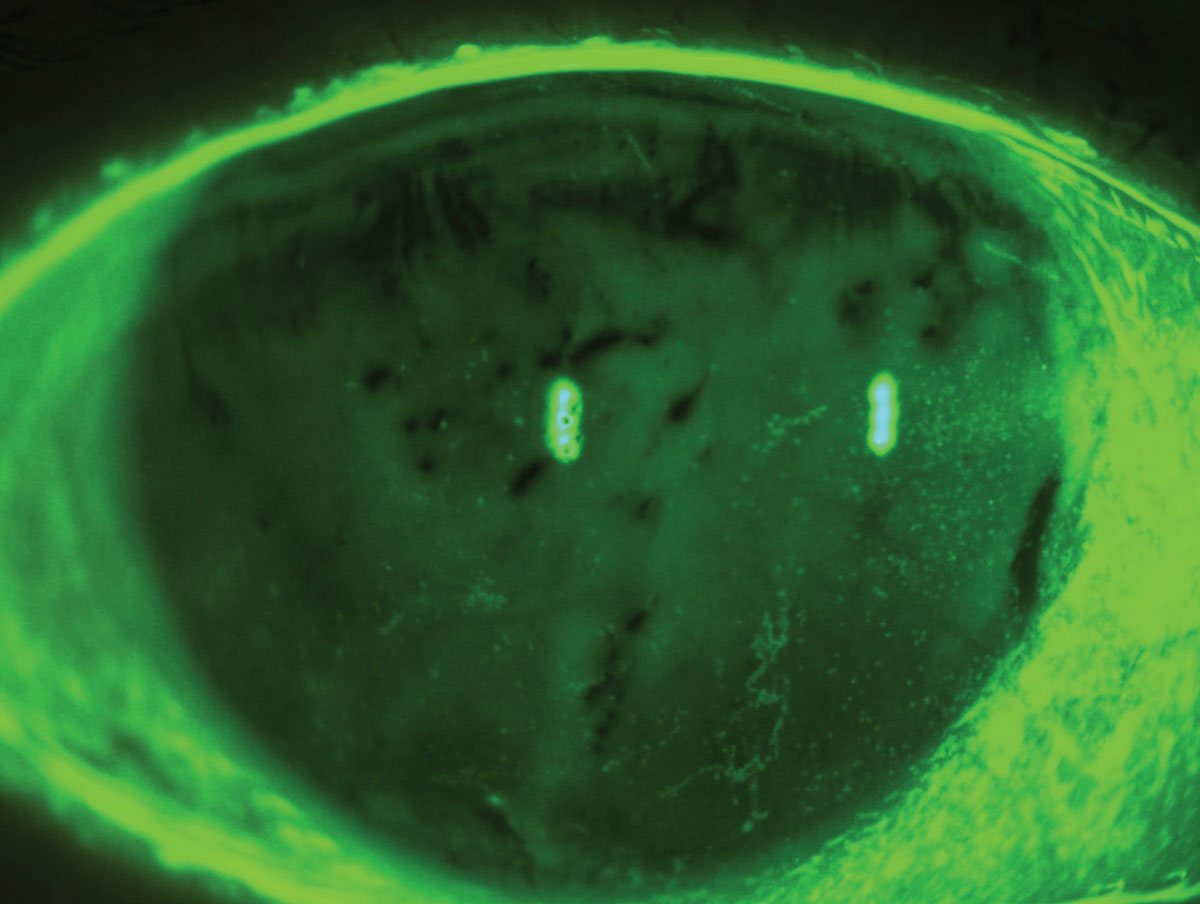 |
| Inflammatory cytokines associated with depression have been found elevated in DED patients, suggesting systemic inflammation could play a biological role in the coexistence of these disorders. Photo: Luis Rojas, OD. Click image to enlarge. |
While it is estimated that around 6% to 8% of US adults have dry eye disease (DED), and much of that stems from systemic conditions and their therapies, its link with mental health has only recently gained more traction.
To expand the current understanding, researchers from the University of Pennsylvania conducted a cross-sectional study using the National Institute of Health’s All of Us database to identify DED patients, totaling 18,257 individuals, who were propensity score matched in a 1:3 ratio to participants without DED. Models were used to assess the potential relationship between dry eye and mental health conditions.
Results indicated that individuals with DED had a significantly higher prevalence of depressive disorders than those without (31.6% vs. 10.7%), as well as anxiety disorders (34.8% vs. 14.7%), bipolar disorder (5.5% vs. 2.3%) and schizophrenia spectrum disorders (2.3% vs. 0.9%); those with DED were more than three times as likely to have a mental health condition. After adjusting for medical comorbidities, including hypothyroidism, Sjögren’s syndrome and systemic lupus erythematosus, DED patients had higher odds of having a depressive disorder, anxiety, bipolar disorder and schizophrenia spectrum disorder than controls. The general association of DED with mental health disorders was stronger in Black vs. white participants.
The researchers expanded upon these findings in their paper on the study for American Journal of Ophthalmology. With the uneven racial predilection, the authors suggest that Black Americans with DED may be more at risk of having mental health disorders than their white counterparts. What’s more, the researchers outline that although they found mental health medication use to be linked with DED, presence of depressive disorders, anxiety, bipolar disorder and schizophrenia spectrum disorders remained strongly associated with DED even in those who never used medications of the sort. Subsequently, the investigators explain “this suggests that the DED itself may play an independent role in the development or exacerbation of mental health conditions.”
In attempt to understand this relationship, the authors posit that this could be a result of both psychological and biological distinctions. For one, constant discomfort from dry eye symptoms can profoundly impact an individual’s daily living activities, leading to inhibited social functioning and healthy sleep habits. As well, it’s possible that the lifelong, unpredictable and difficult-to-manage symptoms of dry eye could cause patients to feel a sense of helplessness, leading to mood changes.
Because of the strong link of DED with multiple psychological disorders, the authors recommend that “greater efforts should be undertaken to screen DED patients for mental health conditions, particularly in historically medically underserved populations.”
Moving forward, they offer that “future studies should investigate how DED symptoms and signs are related to mental health conditions in medically underserved populations and how treatment of DED can help alleviate mental health conditions in such communities.”
| Click here for journal source. |
Zhao AT, He J, Lei Y, Chen Y, Ying GS. Associations between dry eye disease and mental health conditions in the All of Us Research Program. Am J Ophthalmol. October 15, 2024. [Epub ahead of print]. |


